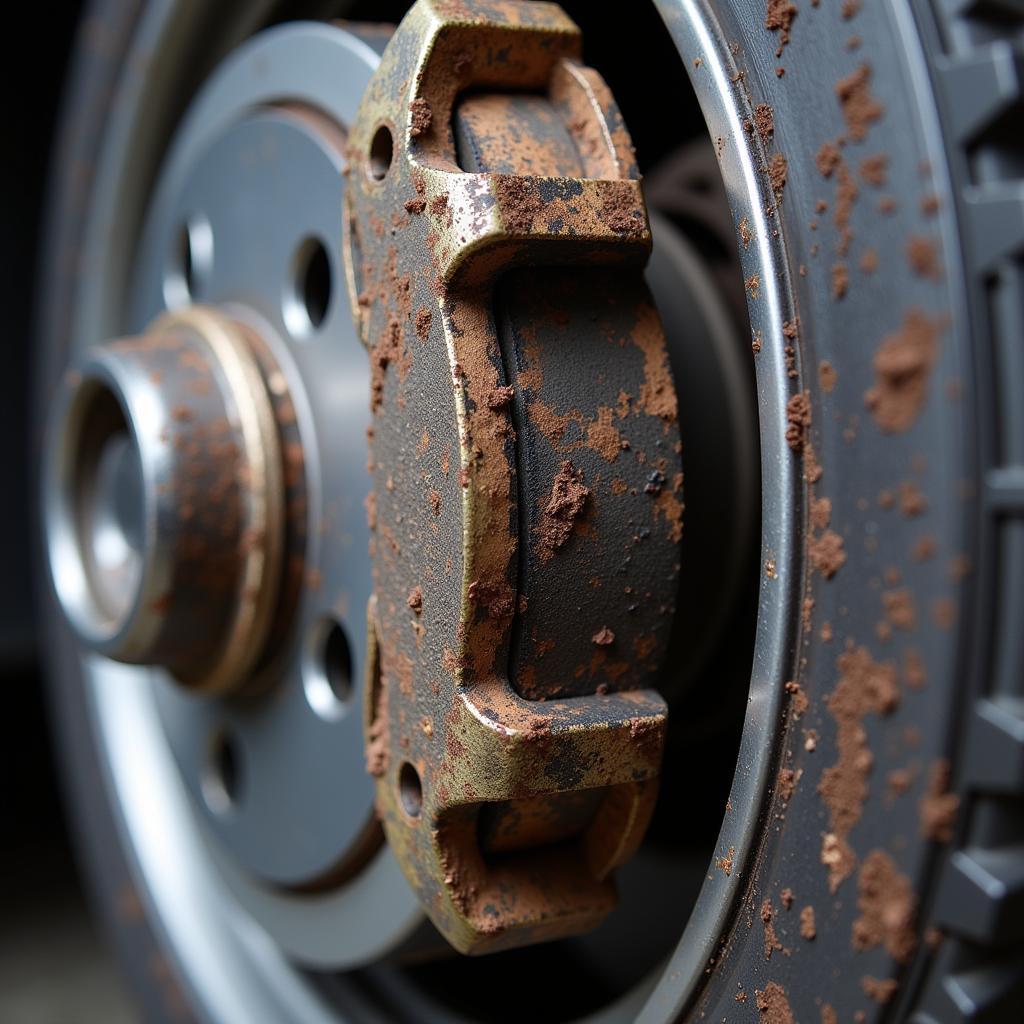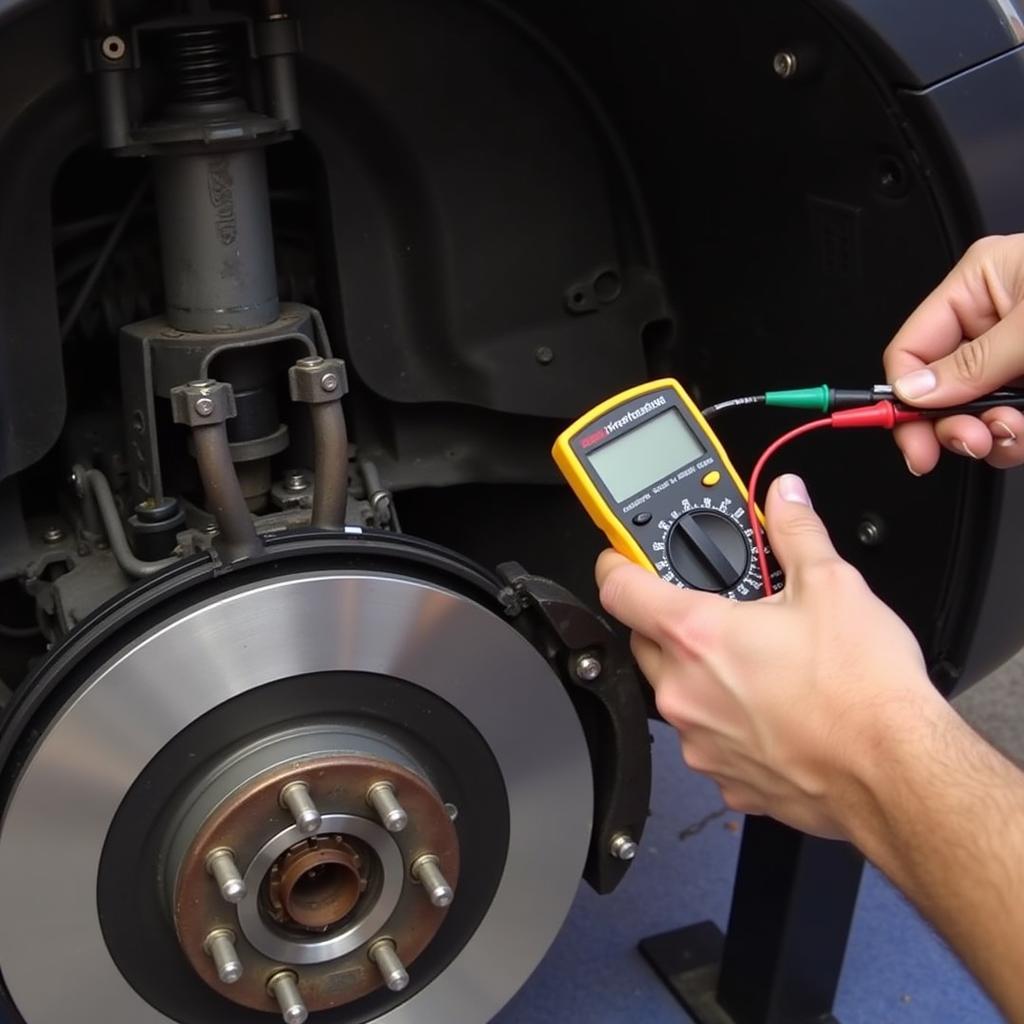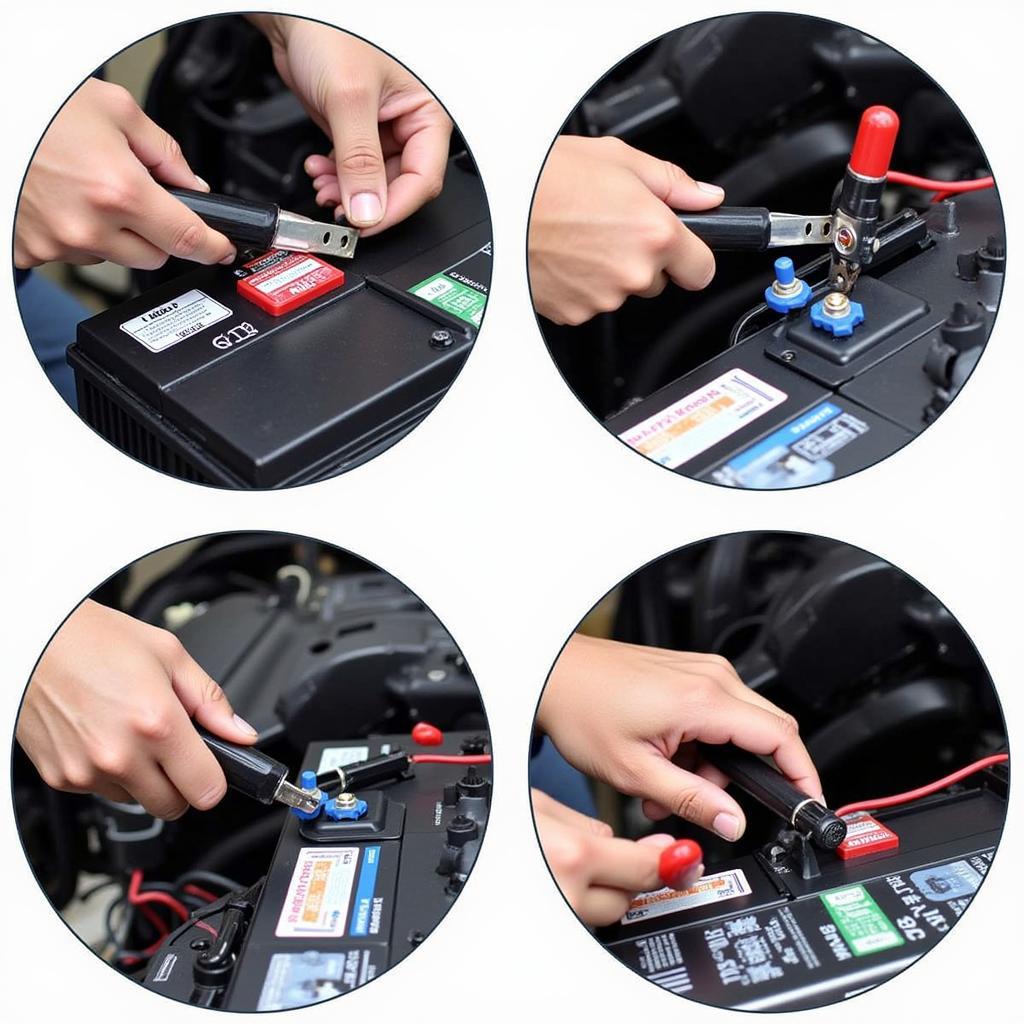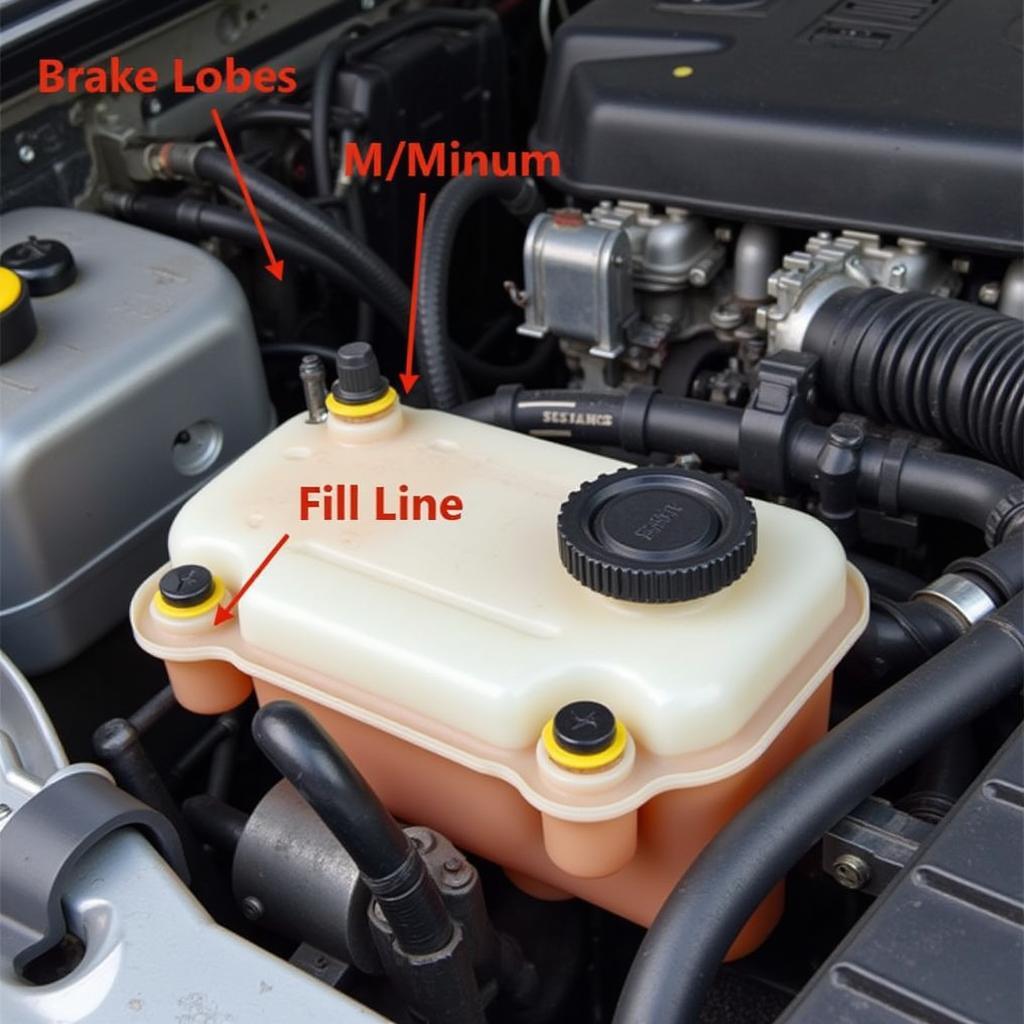The brake pad warning light on your 1999 Audi A4 is a crucial safety feature that alerts you to potential issues with your braking system. Ignoring this light could lead to costly repairs and, more importantly, compromise your safety on the road.
This comprehensive guide will delve into the common causes of a 1999 Audi A4 brake pad warning light illuminating and provide practical solutions to help you address the issue effectively.
Understanding Your Audi A4’s Brake Pad Warning System
Your Audi A4 is equipped with a sophisticated electronic brake pad wear sensor system designed to monitor the condition of your brake pads and alert you when they need replacement. Here’s how it works:
- Wear Sensors: Small metal tabs, known as wear sensors, are embedded within the brake pad material.
- Electrical Circuit: These sensors are connected to your car’s electrical system, creating a complete circuit.
- Warning Light Activation: As your brake pads wear down, the metal tab eventually makes contact with the brake rotor. This contact completes the electrical circuit, triggering the brake pad warning light on your dashboard.
Common Causes of a 1999 Audi A4 Brake Pad Warning Light
While worn brake pads are the most frequent culprit behind the warning light, several other factors can contribute to this issue. Let’s explore some of these causes:
1. Worn Brake Pads
This is the most straightforward reason for the warning light. Over time, the friction material on your brake pads wears down, eventually exposing the wear sensor.
Solution: The most effective solution is to replace your brake pads. It’s recommended to replace both the pads and rotors simultaneously to ensure optimal braking performance and even wear.
 Worn Brake Pads on an Audi A4
Worn Brake Pads on an Audi A4
2. Damaged or Faulty Brake Pad Wear Sensor
A malfunctioning brake pad wear sensor can also trigger the warning light, even if your brake pads are relatively new. This can occur due to:
- Physical Damage: Debris or road hazards can damage the sensor wires or the sensor itself.
- Corrosion: Exposure to moisture and road salt can lead to corrosion, disrupting the electrical connection.
- Manufacturing Defects: In rare cases, a faulty sensor may be installed from the factory.
Solution: A qualified mechanic should inspect the brake pad wear sensors for damage or corrosion. If a faulty sensor is detected, it needs to be replaced.
 Inspecting Brake Pad Wear Sensor on Audi A4
Inspecting Brake Pad Wear Sensor on Audi A4
3. Low Brake Fluid Level
Low brake fluid is a serious issue that can also trigger the brake pad warning light. When the brake fluid level drops significantly, it could indicate:
- Brake Fluid Leak: A leak in the brake lines, calipers, or master cylinder can lead to fluid loss.
- Worn Brake Components: As brake pads wear, the calipers need more brake fluid to function correctly, potentially leading to a low fluid level.
Solution: It’s crucial to check your brake fluid level and top it off if needed. However, if you notice a consistently low fluid level, it’s vital to have your braking system inspected for leaks by a professional mechanic immediately.
4. Electrical Issues
Electrical problems within your car’s braking system can also cause the warning light to illuminate. These issues might include:
- Short Circuits: A short circuit in the wiring harness connected to the brake pad wear sensors can cause false readings.
- Blown Fuse: A blown fuse in the circuit related to the brake warning system can interrupt the flow of electricity.
Solution: A qualified mechanic should diagnose and repair any electrical issues within the braking system. This may involve inspecting the wiring harness for damage or testing the related fuses.
Conclusion
Addressing the brake pad warning light on your 1999 Audi A4 promptly is crucial for maintaining your safety and preventing potentially expensive repairs. While worn brake pads are the most common cause, it’s essential to consider other possibilities, such as a faulty sensor, low brake fluid, or electrical issues.
If you’re unsure about diagnosing or fixing the issue yourself, it’s always best to consult a qualified mechanic specializing in Audi vehicles. Regular maintenance and timely repairs will ensure your Audi A4 continues to deliver a safe and enjoyable driving experience for years to come.


